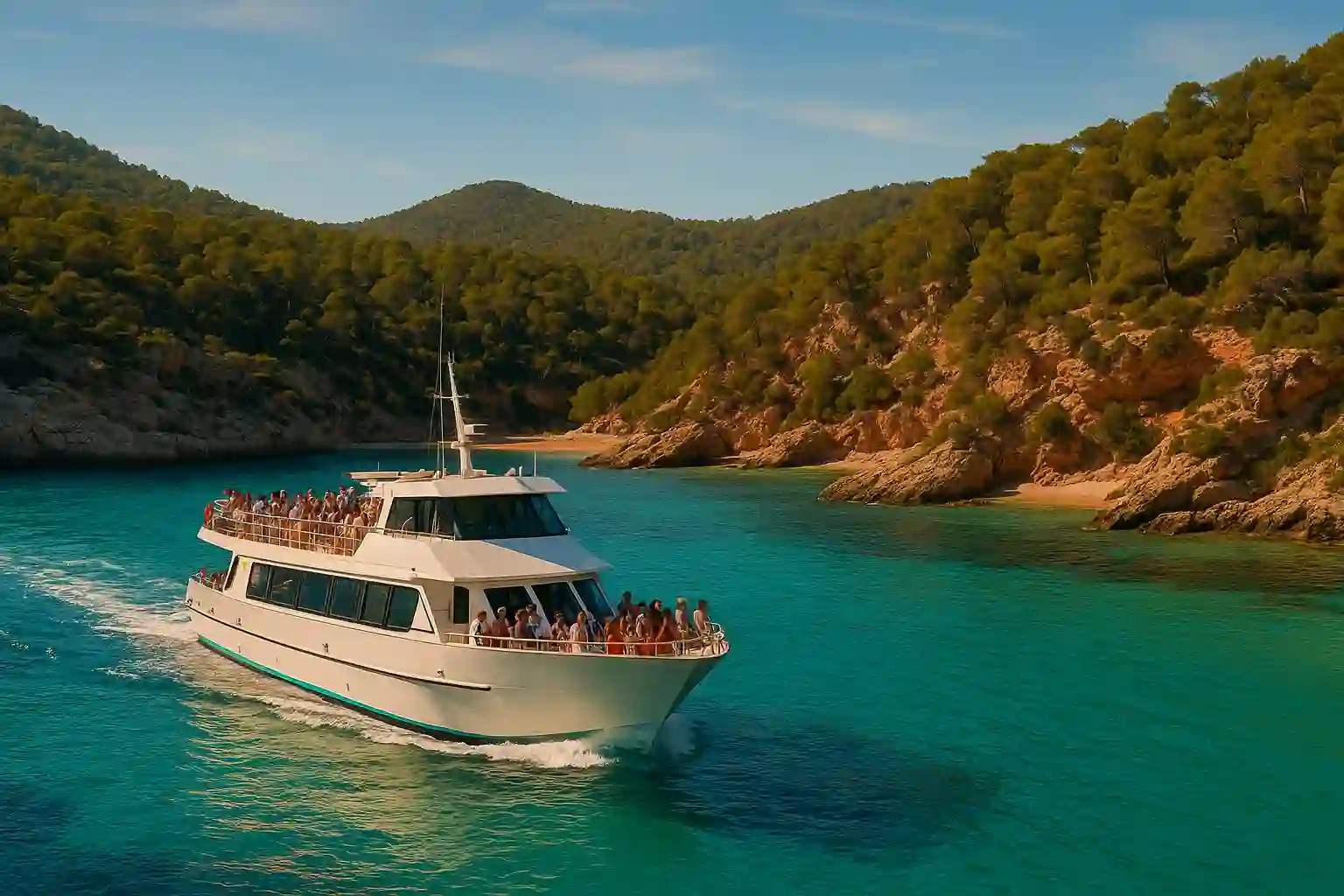Cala Salada North Cruise – Snorkeling, Clear Water, and Slow Coastal Hours

We clear the harbor and the coast starts to pleat: ochre rock, green pines, white houses set back like careful punctuation. The captain skims the headlands, then eases back the throttle. Cala Salada appears in degrees — pale sand, cobalt depth, a shelf of stone that makes the water turn mirror-bright near shore.
First Stop: Cala Salada
Snorkels click; fins thump softly on deck. I slide over the side and the sea says hola with a chill. Beneath me, the bottom is a mosaic of rock and sand, schools of silver fish flashing like loose sequins. Above, the pines lean into their own reflections. A friend floats and whispers, “¡Qué claro!” — so clear.
Language on Deck
Boats are small classrooms. New words arrive exactly when you need them: tubo (snorkel), aletas (fins), chaleco (life vest), brújula (compass). I practice the soft j in jarra (pitcher) while pouring water, and realize the sea is also a memory device — sounds stick when they’re tied to sun and motion.
If you want to turn chance vocabulary into confidence, pair your trip with short, focused sessions: an intensive Spanish course helps you catch more of the island’s conversation — the easy banter between crew, the directions before a swim stop, the jokes that live in gestures as much as words.
Cala Saladeta & the Northern Folds
We nudge around the point toward Cala Saladeta, smaller and somehow brighter, as if the cove were tilted toward the sun. Kids launch from flat rocks; a snorkeler points at a cloud of tiny fish that turns together like a thought. The captain lifts a finger and the boat pivots north again, tracing scallops of coastline where caves darken the rock.
Lunch is a moveable feast: bread that cracks, tomato that tastes like July, a jar of olives passing hand to hand. Someone says, “¡Que aproveche!” and the boat briefly feels like a kitchen table with spectacular windows. A gull hangs on a thread of air and considers joining us.
Second Stop: Snorkel Garden
At the next cove, the bottom tesselates into grasses and boulders. I follow a ribbon of sunlight into deeper green. A shy octopus shifts from stone to russet and I freeze, watching color become decision. When I surface, laughter carries in the light wind, and the boat rocks like a lullaby.
Back on deck, the crew pours cool drinks. Someone asks about sea names and we compare words: medusa (jellyfish), erizo (urchin), sargo (seabream). The language of fish is a poem of sibilants. On Ibiza, Spanish and Catalan braid easily; on the water, they untie into simple, friendly strands.
Pines, Rock, and Returning Light
Afternoon warms the sea to a softer blue. The cliffs trade shade with the coves; our wake writes and rewrites the same line. We point back toward San Antonio, and Cala Salada becomes a memory already polishing itself — the sea’s specialty. Salt dries on my shoulders in small maps I’m tempted not to wash off.
As the harbor opens, the island’s volume rises — café clatter, scooters, conversation drifting like music. We step back onto the pier a little quieter than we left, which is often how a good day returns you.
